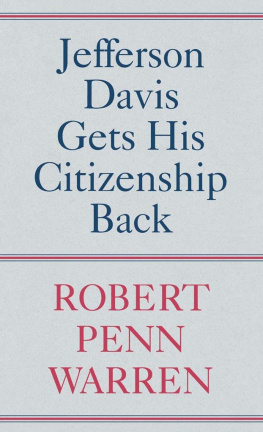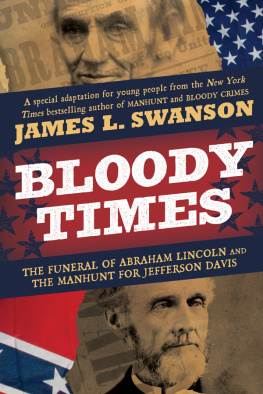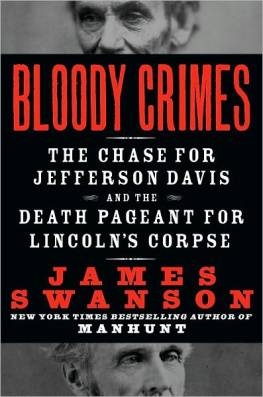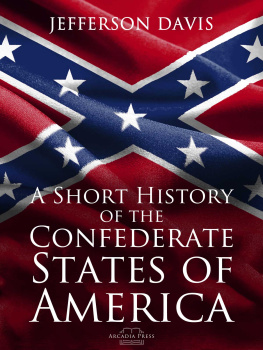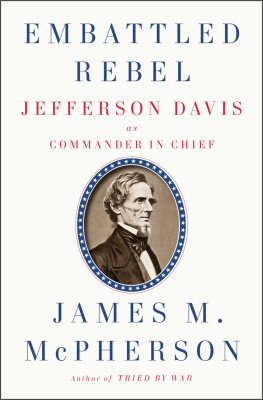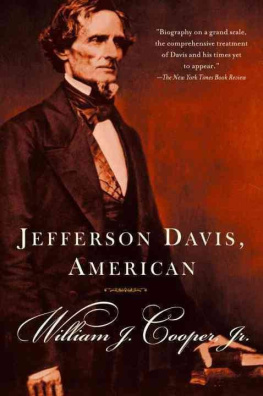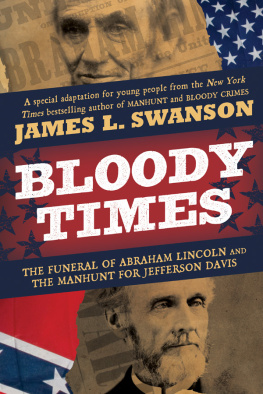Jefferson
Davis
Gets His
Citizenship
Back
Jefferson
Davis
Gets His
Citizenship
Back

ROBERT
PENN
WARREN
THE UNIVERSITY PRESS OF KENTUCKY
Published by The University Press of Kentucky, scholarly publisher for the Commonwealth, serving Berea College, Centre College of Kentucky, Eastern Kentucky University, The Filson Club, Georgetown College, Kentucky Historical Society, Kentucky State University, Morehead State University, Murray State University, Northern Kentucky University, Transylvania University, University of Kentucky, University of Louisville, and Western Kentucky University
This work originally appeared in The New Yorker.
Reprinted by permission.
Copyright 1980 by Robert Penn Warren
Editorial and Sales Offices: The University Press of Kentuck
663 South Limestone Street, Lexington, KY 40508-4008
The Library of Congress has cataloged the first printing of this title as follows:
Warren, Robert Penn, 1905
Jefferson Davis gets his citizenship back / Robert Penn Warren. Lexington, Ky.: University Press of Kentucky, c1980.
114 p.; 23 cm.
ISBN 0-8131-1445-4
1. Davis, Jefferson, 1808-1889. 2. StatesmenUnited StatesBiography. 3. Confederate States of AmericaPresidentsBiography. I. Title
E467.1.D26W326 80-51023
973.7130924dc19
[B] AACR2 MARC
Library of Congress
This book is printed on acid-free recycled paper meeting the requirements of the American National Standard for Permanence of Paper for Printed Library Materials.

Manufactured in the United States of America
Contents
Jefferson
Davis
Gets His
Citizenship
Back
T HERE are two kinds of memory. One is narrative, the unspooling in the head of what has happened, like a movie film with no voices. The other is symbolicthe image, say, of a dead friend of long ago, with a characteristic expression of face, which may be called up by a name. When I think of my maternal grandfather, I see an old man with white hair and a rather pointed beard, wearing bluejean pants, with a black tie hanging loose from a collar open at the throatfor in that memory it is an unchanging summer. He is sitting in a sturdy split-bottom chair, with its arms broadening to wide, rounded endsthe kind of chair that in the old days appeared here and there among rockers of similar design on the verandas of summer hotels in the South, called springs, where people went to avoid malaria. But my grandfathers chair is under a cedar tree, propped back against the trunk, and blue smoke from his cob pipe threads thinly upward into the darkness of the cedar.
I am a small boy sitting tailor-fashion on the unkempt lawn, looking up at the old man, and then, beyond him, at the whitewashed board fence, and then at the woods coming down almost to the fence. If it was getting toward sunset, the uncountable guinea fowl would be coming in from foraging to roost near the house, making a metallic and disgruntled but halfhearted clatter, not the full, outraged racket of morning. I would be waiting for the old man to talk. Or even to sing, in his old, cracked voice, one of the few songs that might rise from his silence, sung only for himself. Well Gather in the Canebrake and Hunt the Buffalobut even then I knew that long before his fathers time the buffalo had found their classic habitat on the Great Plains out West. Or a sad song about Hallie in the Valley, which I later learned was the song the Confederate troops had sung down the streets of New Orleans to wind up at Shiloh. And there was the song that began, I wandered today to the hill,. Maggie, which, like the others, seemed to be backward-looking. For, in spite of the obvious knowledge that I would grow up, I had the sweet-sad feeling that the world had already happened, that history had come to an endthough life did go on, and people lived, died, went broke.
Certainly that sense of changeless-ness hung over the run-down farm and farmhouse and under the cedar tree. My grandfather had lost his wife, Mary, years back. His only son lived far off in Atlanta. His daughters were all married and gone far awayexcept the beauty, that is, who was now an old maid, and the youngest one, who remained there on the farm to keep house for the old man. She was a small, charming woman, full of gaiety, vigorous and competent. She could pick up a twelve-gauge by the kitchen door, step out on the back porch, and knock a chicken hawk out of the skyall in one motion, it seemedand step back in and resume whatever song she had been singing. And she had the spunk to stand up to her fathers awe-inspiring opposition to the man of her choice and run away and marry anywayat the house of my parents, in the small town of Guthrie, Kentucky.
Then the old man let the new husband take over the running of the farm, and sought refuge in his books as long as his eyes held out. In the summer, when the married daughters came for a visit under his roof, and I came, too, I might hear them now and then remark, Papa is an inveterate readerwhich I understood as Confederate reader, wondering all the while what a Confederate reader might be. The daughters might say, too, Papa is not practical, he is visionary. And this, I gradually learned, referred to his one venture as a businessman, years back, when he had apparently been fairly successful as a tobacco buyer but, if I have the family talk right, had forgotten to pay an insurance premium on a warehouse of tobacco consigned to him, and the warehouse, such was his luck, burned. I remember hearing my young aunt and her husband singing together night after night, out in a swing on the lawn, in darkness or by moonlight, and seeing the streak of lamplight under my grandfathers door. He would be reading. All this long after I was supposed to be asleep. Nobody ever came to the farmthrough the big gate, a mile off on the pikeexcept kin and a family named Rawls: a widow with two daughters and a son, my only playmate. The Rawlses would come twice a summer, for late Sunday dinner, and always after dinner the older daughter (who studied elocution and later became a college professor) would give a recital, with gestures and stances, of poems my grandfather liked. His own head was, in fact, full of poems, and under the cedar he would sometimes begin reciting to me. There might be the stirring lines of Fitz-Greene Hallecks Marco Bozzaris:
At midnight, in his guarded tent,
The Turk was dreaming of the hour
When Greece, her knee in suppliance bent,
Should tremble at his power.
On to the surprise attack by Bozzaris and his exhortation:
Strikefor the green graves of your sires:
Godand your native land!
Byron usually followed: So, Well Go No More a-Roving and bits of Childe Harold. And always Burns, in the old mans version of the Scots tongue. But I remember, too, the expression of pitiful outrage when memory would leave him stranded with some eloquence already on his lips.
What I liked even better than the poetry, however, was the random tale of a war he himself had fought for four years. He had volunteered as a private but by Shiloh was a captain of cavalry, and in that rank remained. He wasfor a time, at leastunder the immediate command of General James Ronald Chalmers; Chalmers was later attached to General Nathan B. Forrest, the old mans hero. His account of the war came in bits and pieces, sometimes bloody, sometimes funny. My grandfather was not a witty man, but he could boast of one retort that, after all the years, still pleased his vanity. In northern Mississippi, a patrol from his company surprised a Yankee patrol and brought in, among the survivors, a lieutenant who was rather swarthy but not Negroid. He spoke a very correct English, but with a strange accent. My grandfather asked what he was. He was a Turk, he replied, and my grandfather demanded what, in Gods name, he was doing in Mississippi. I am here to learn the art of war, the Turk replied proudly. My grandfather remarked that he had come to the right place.
Next page
